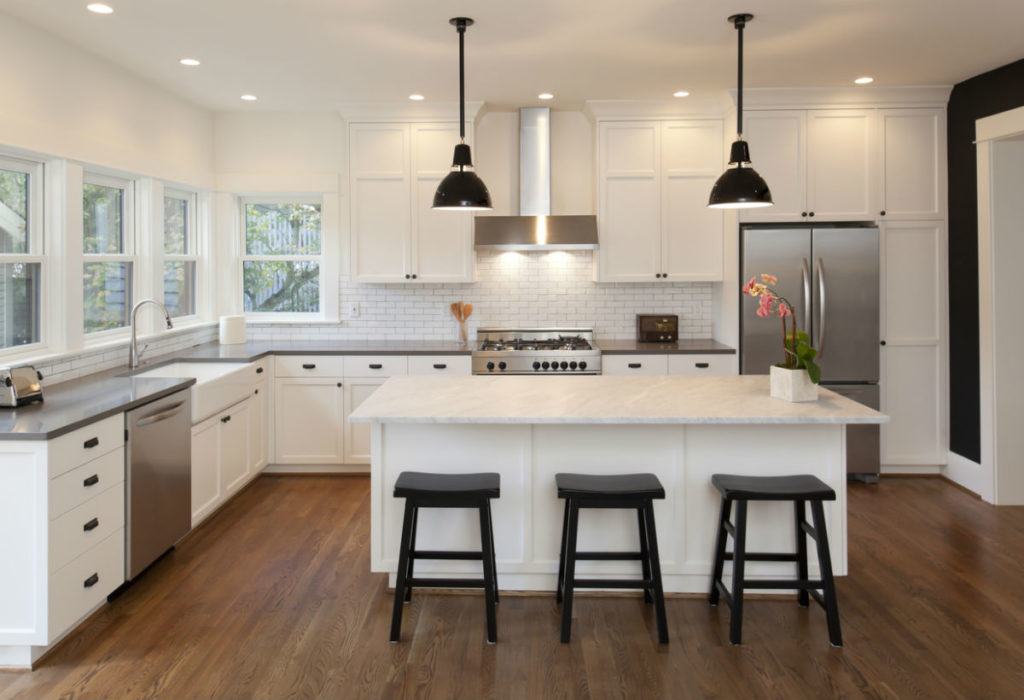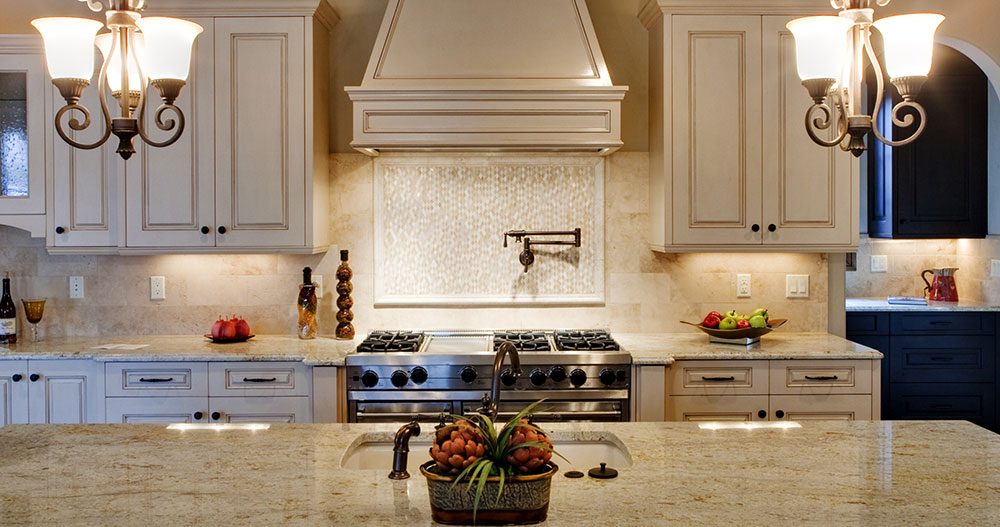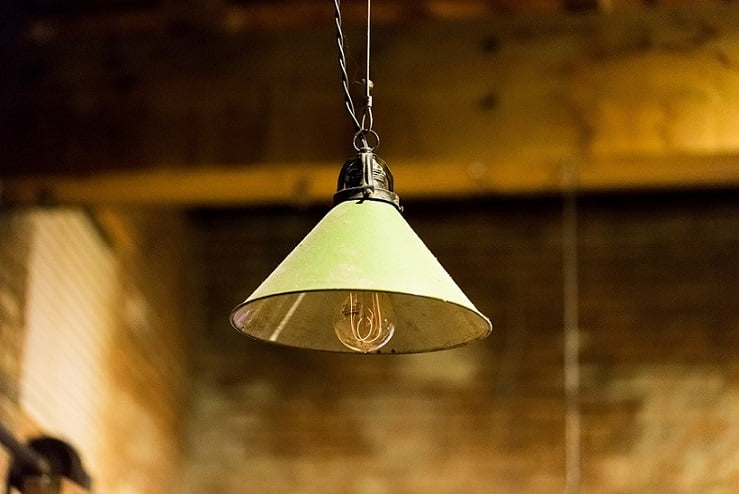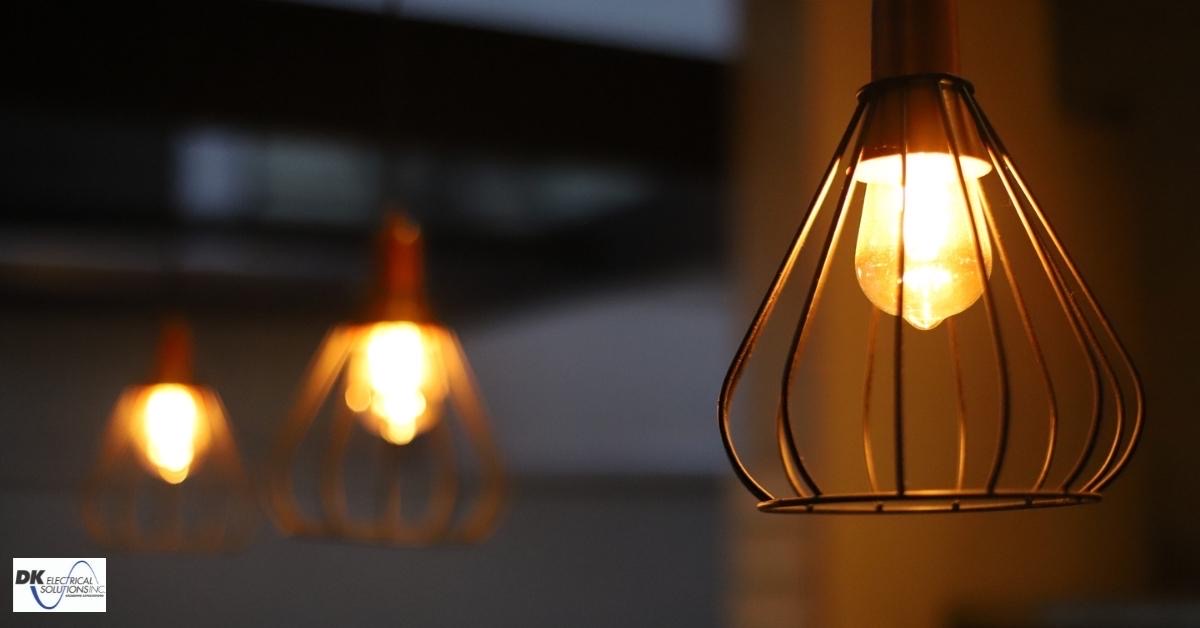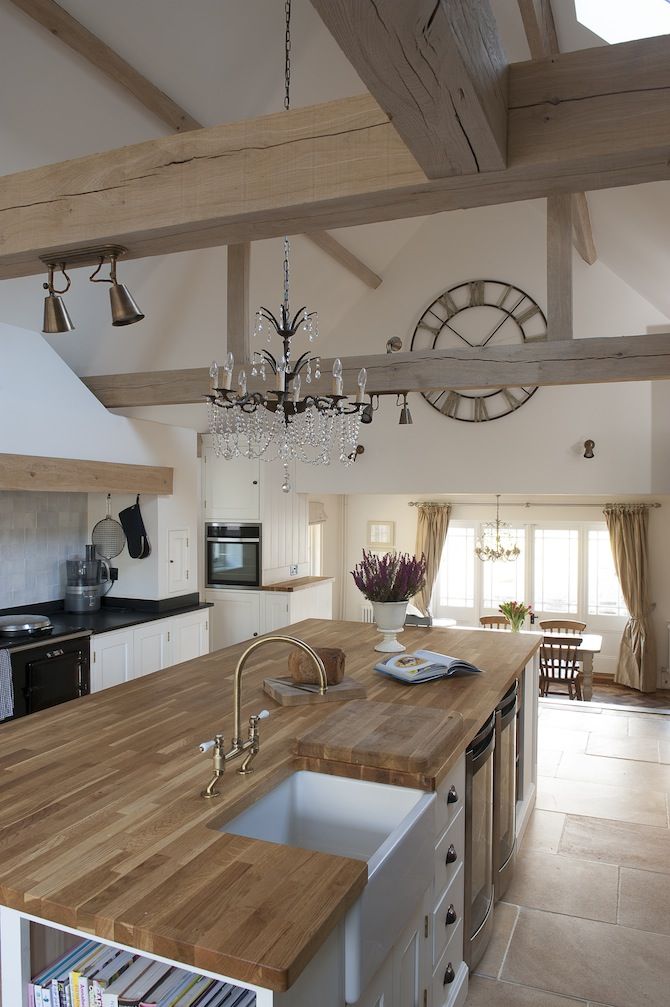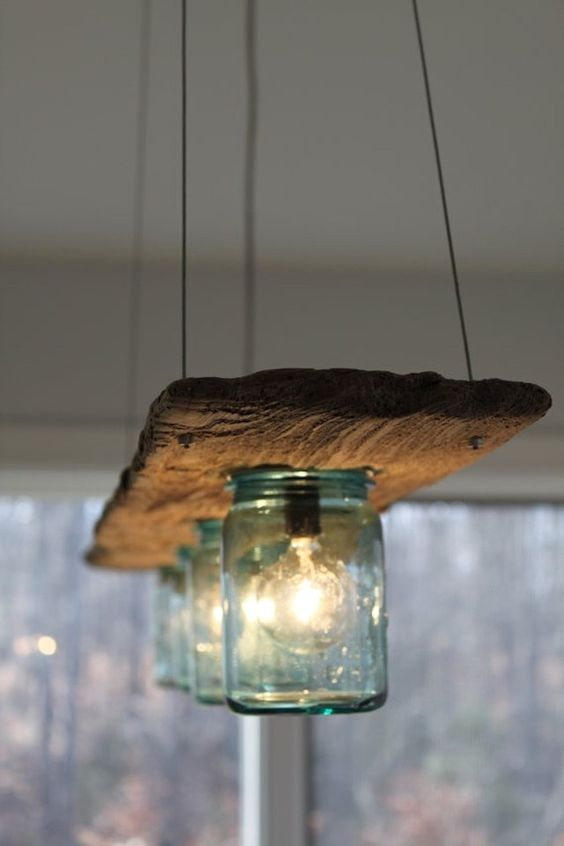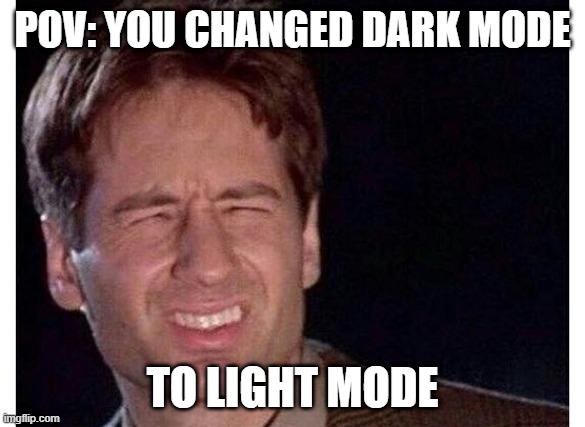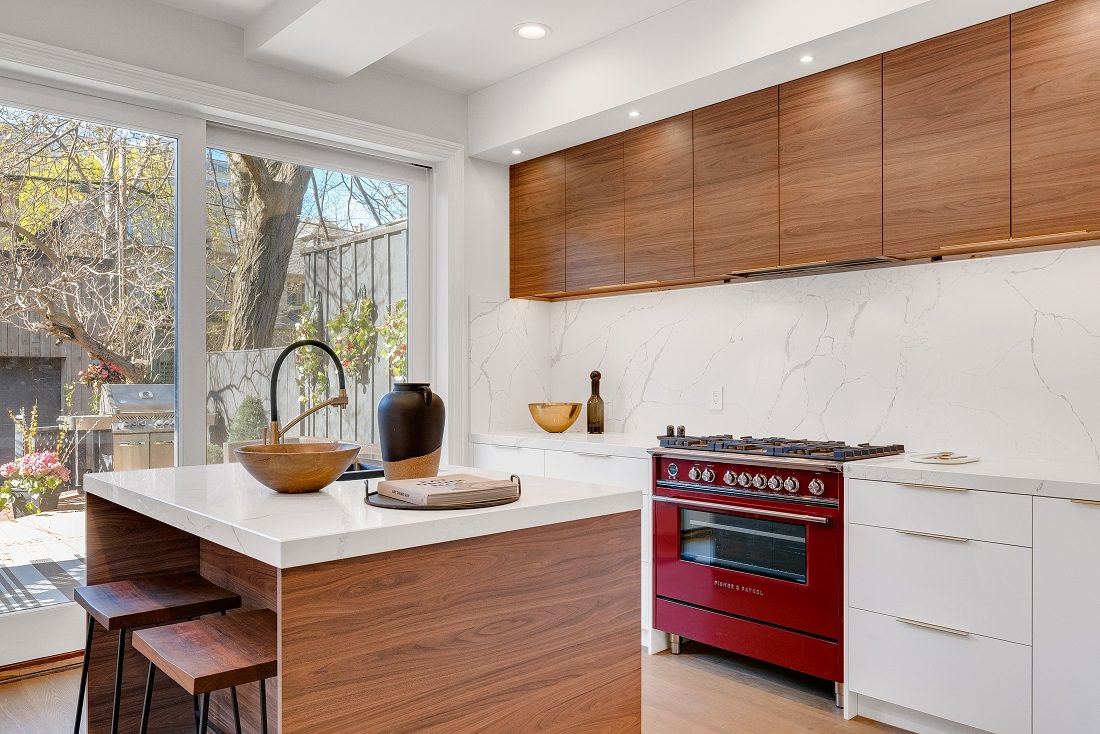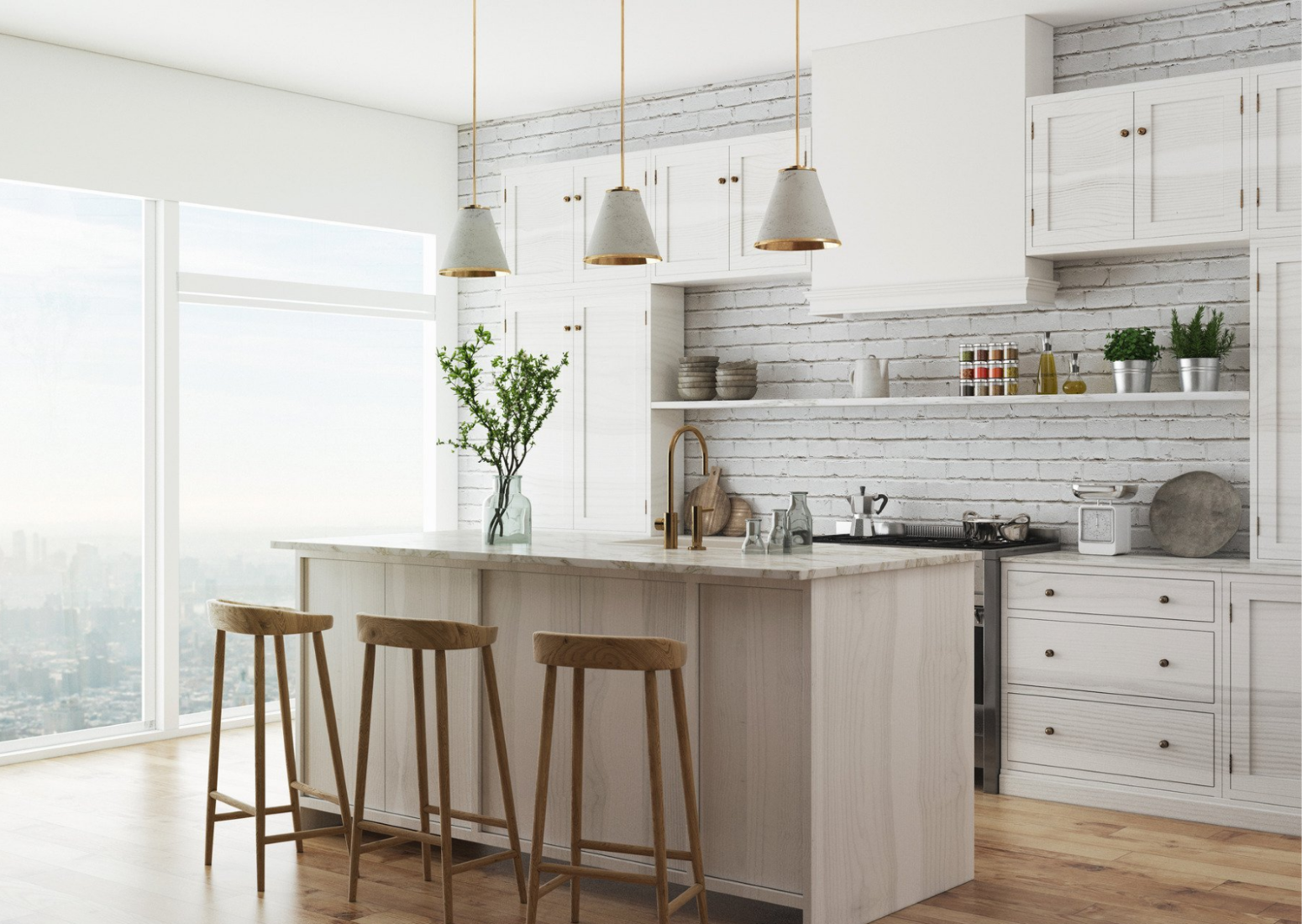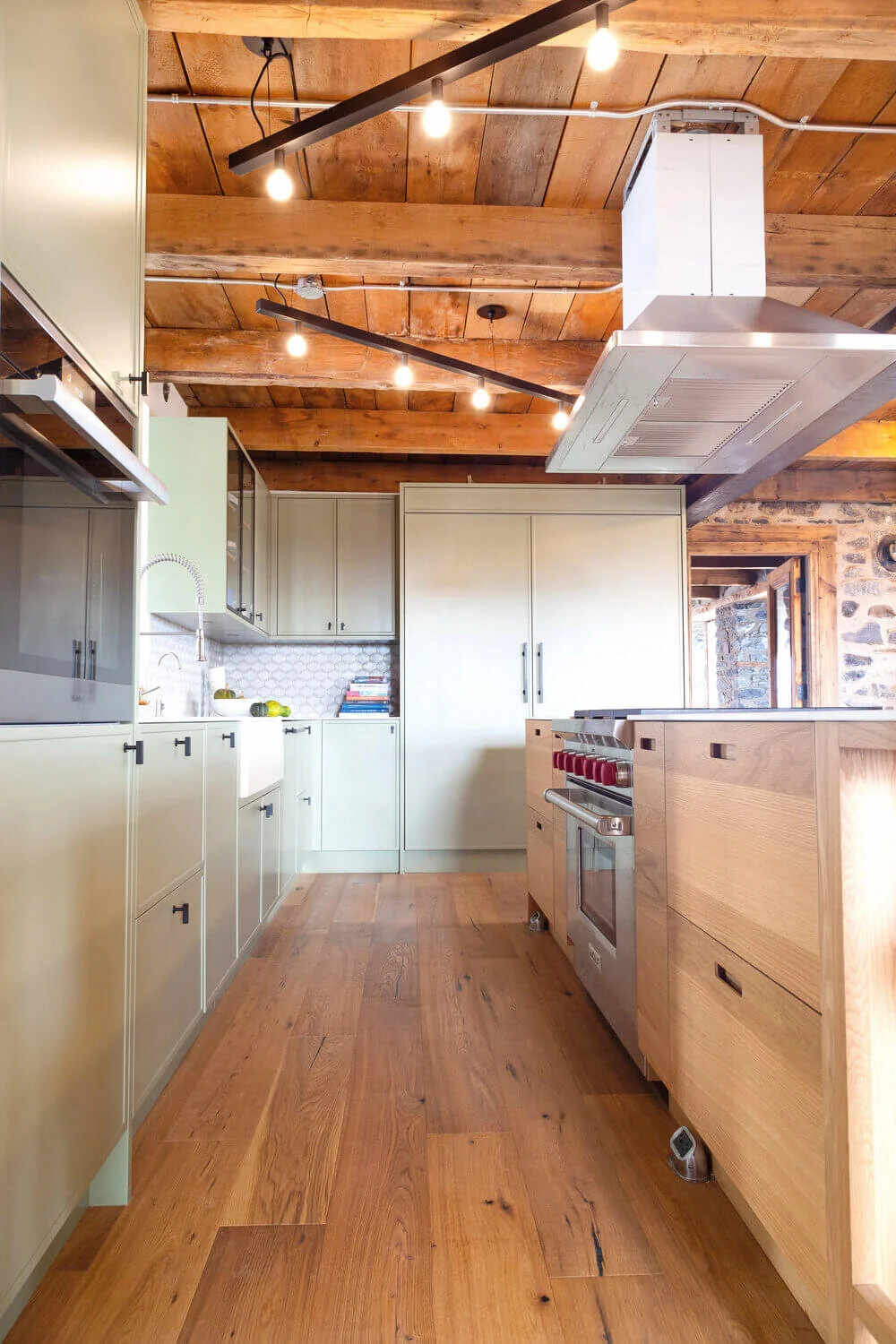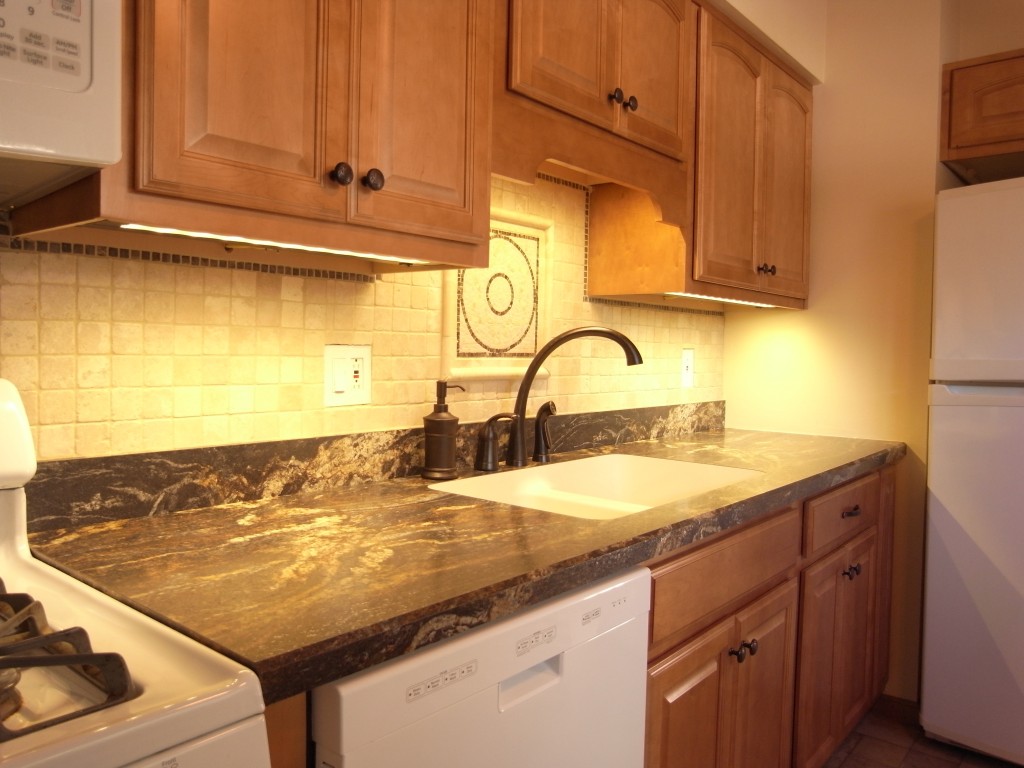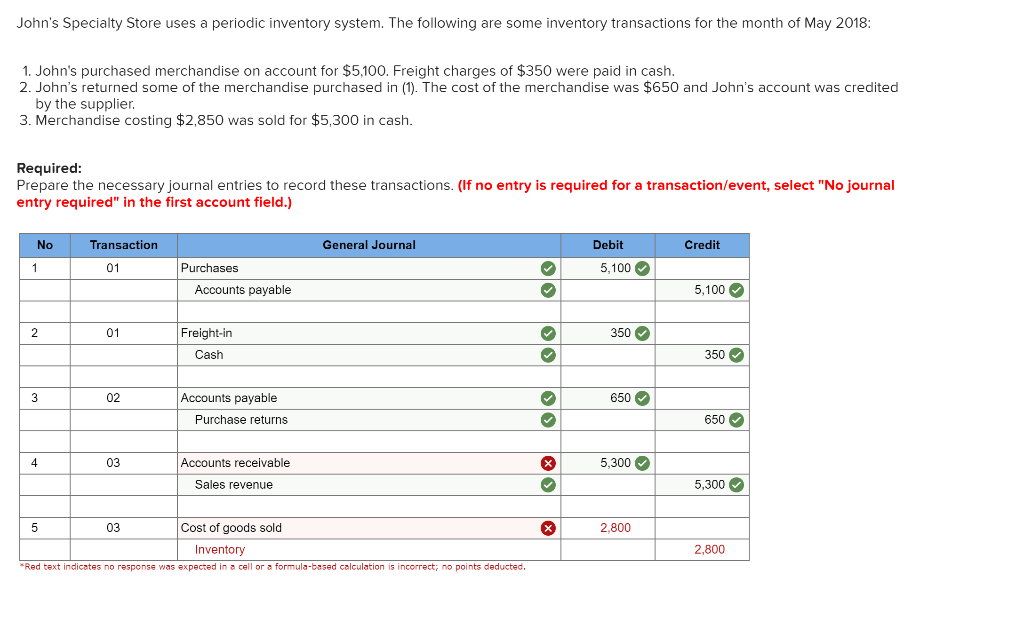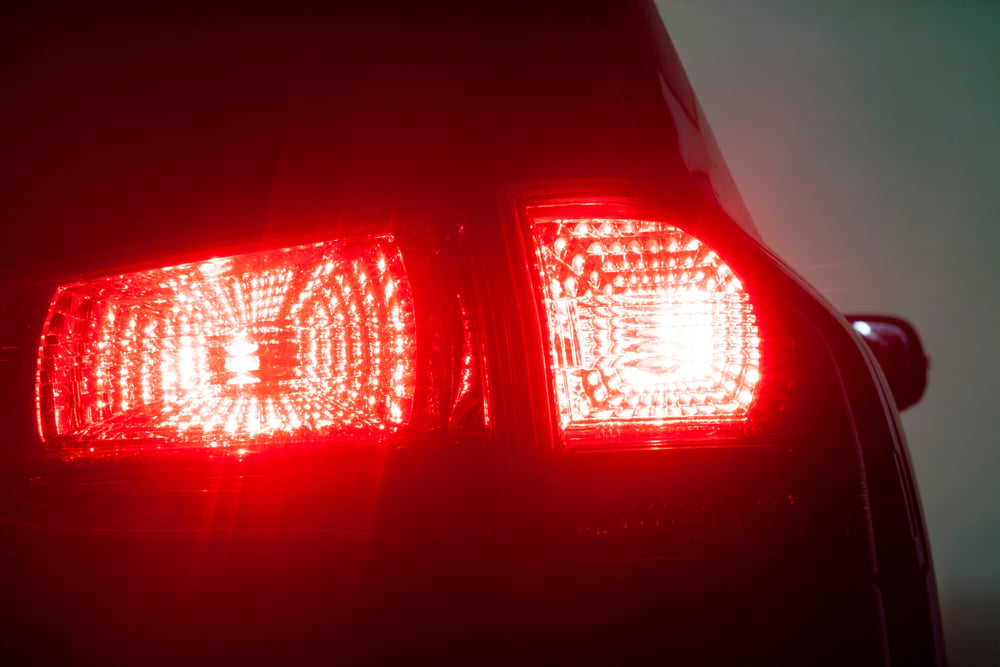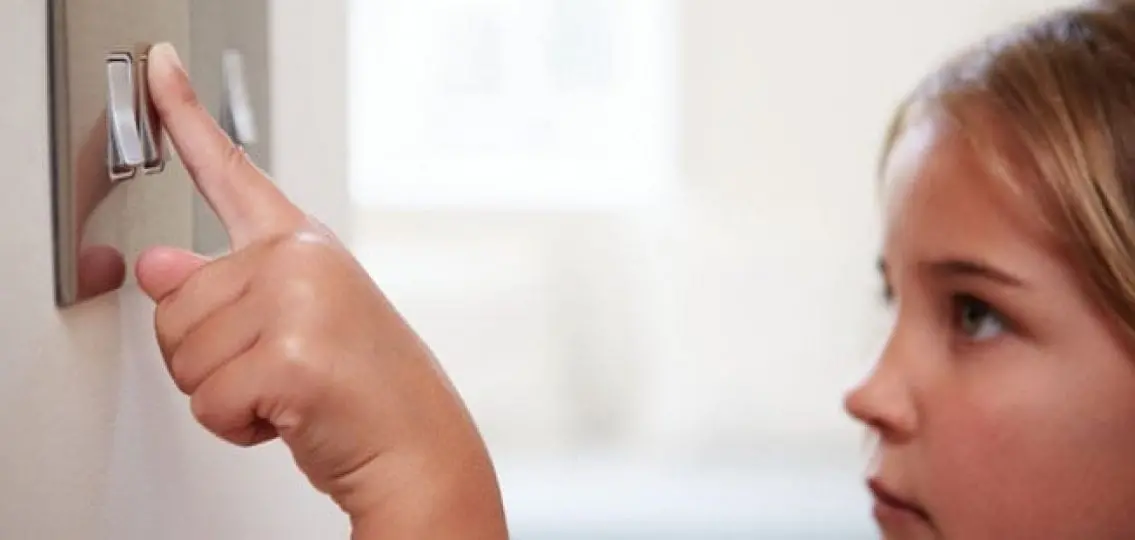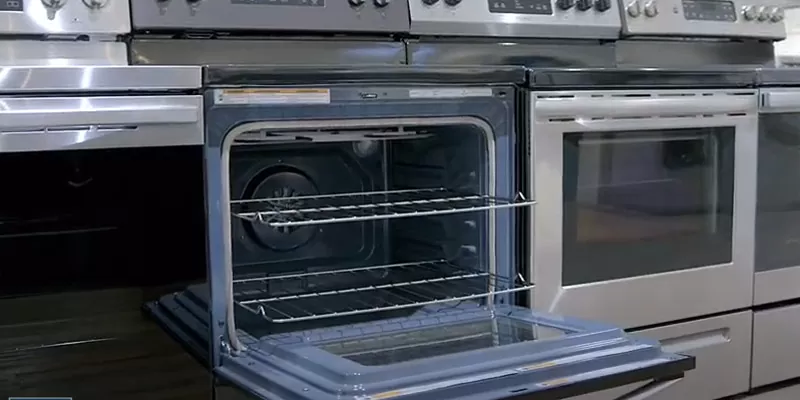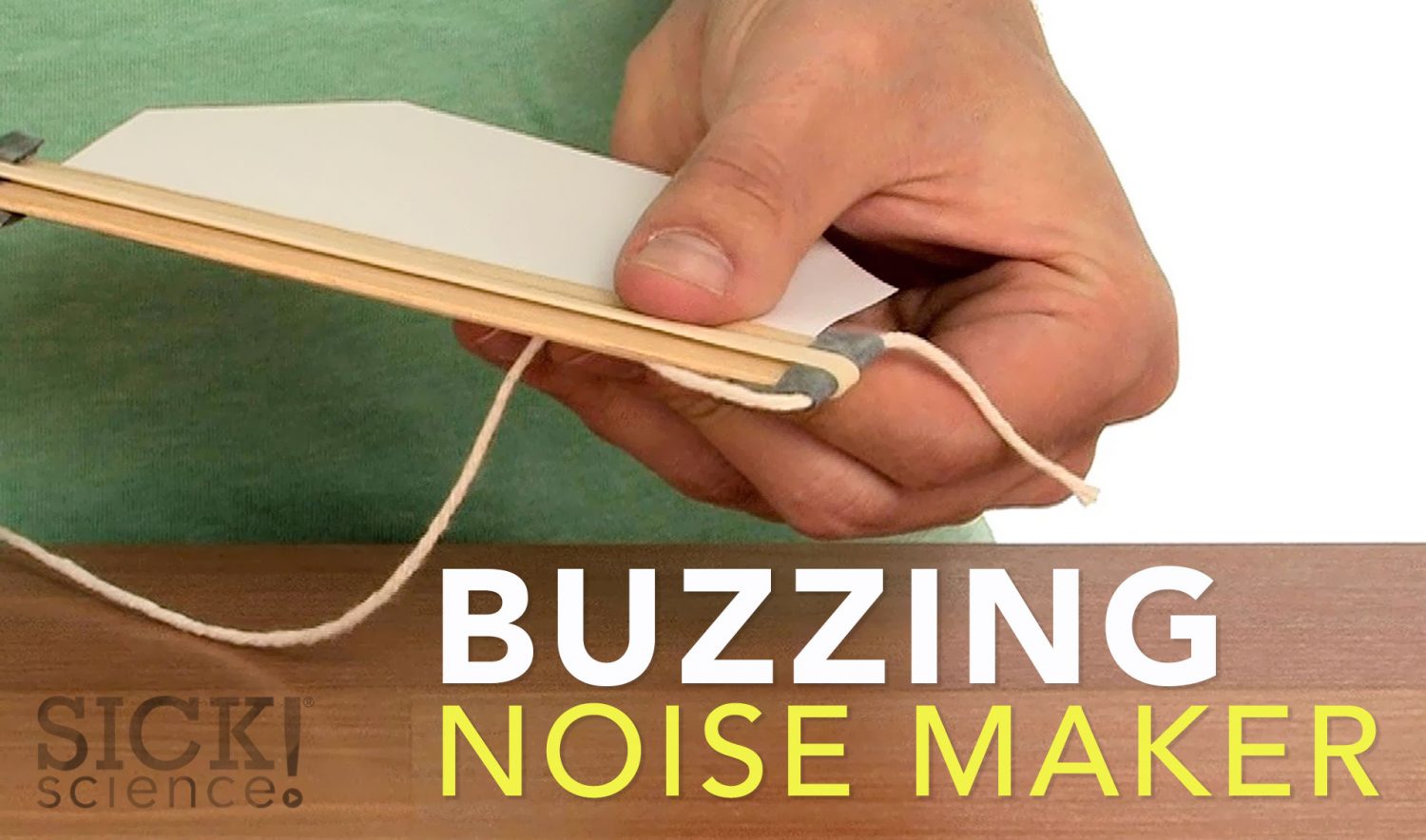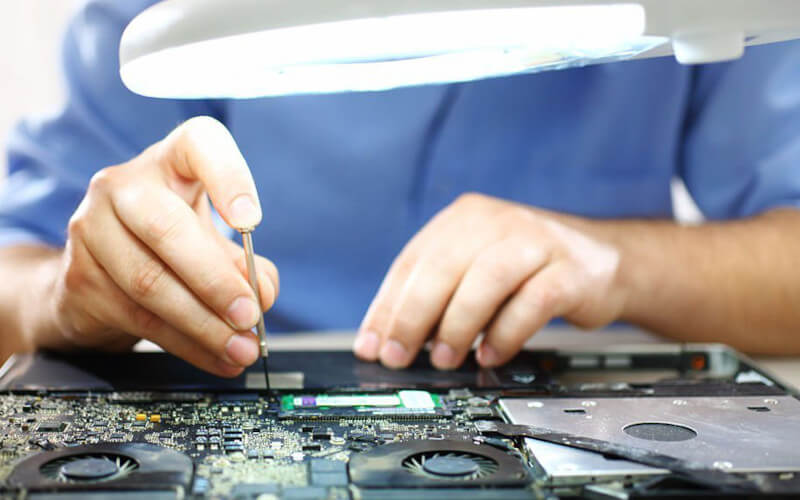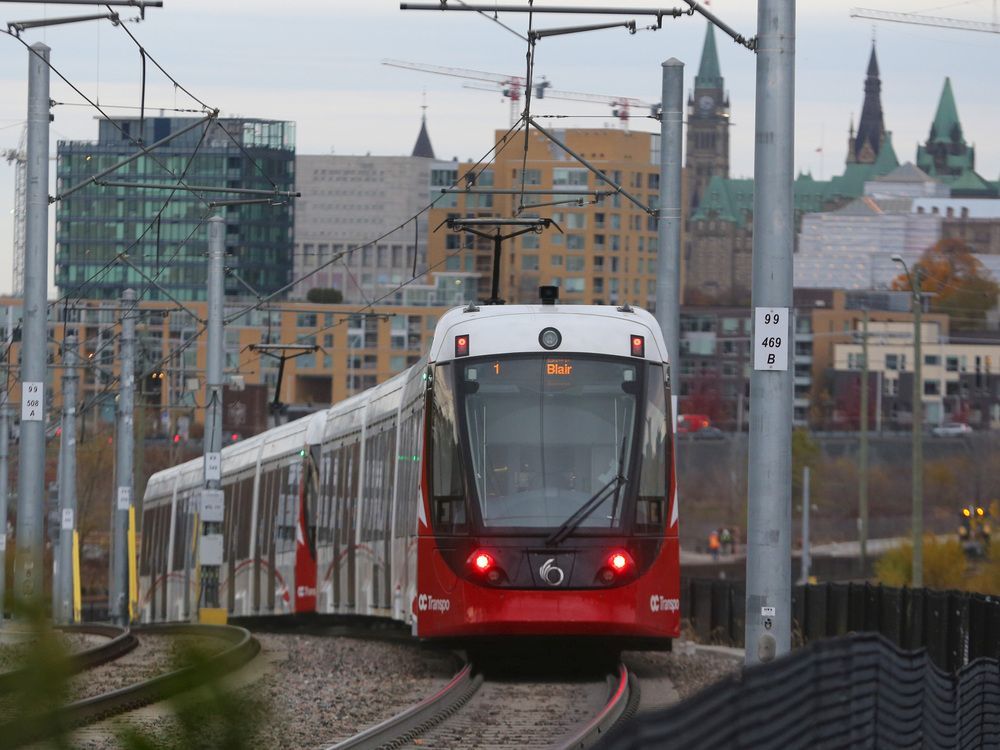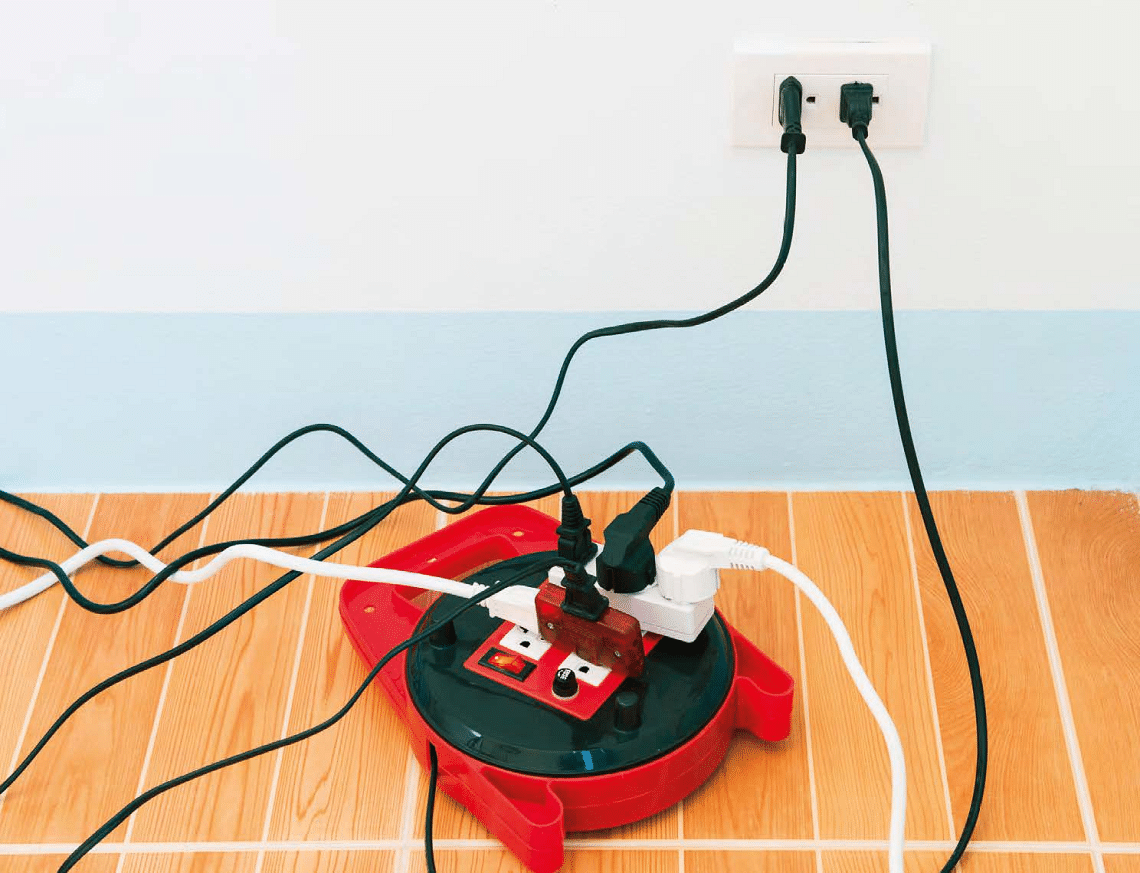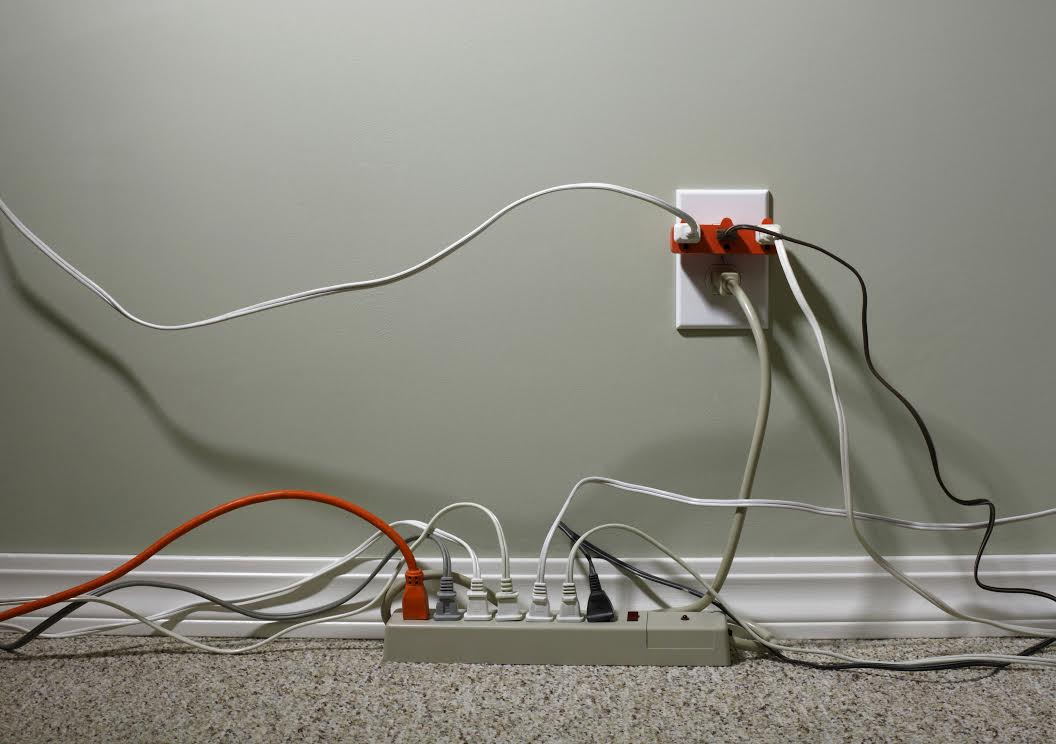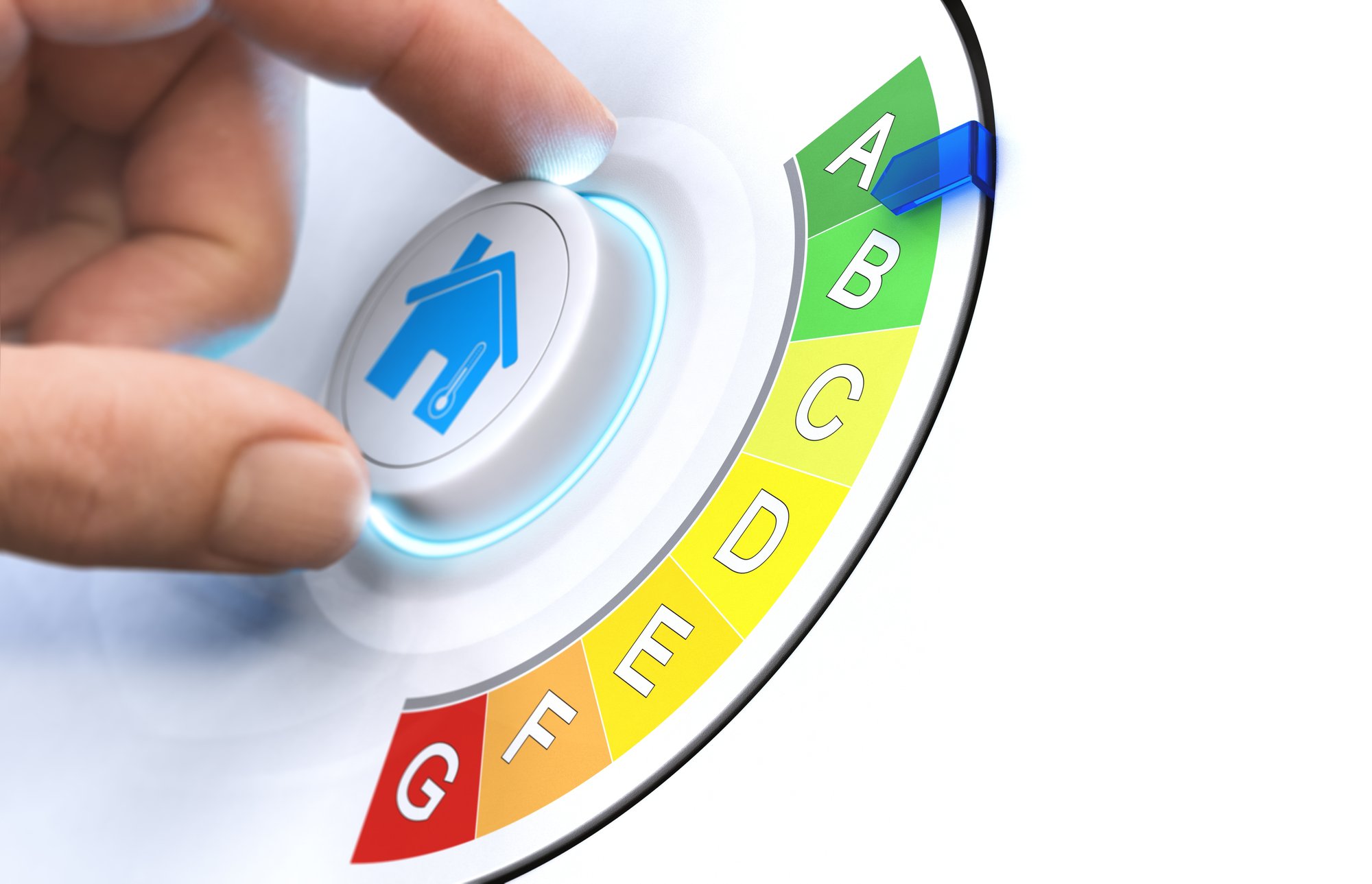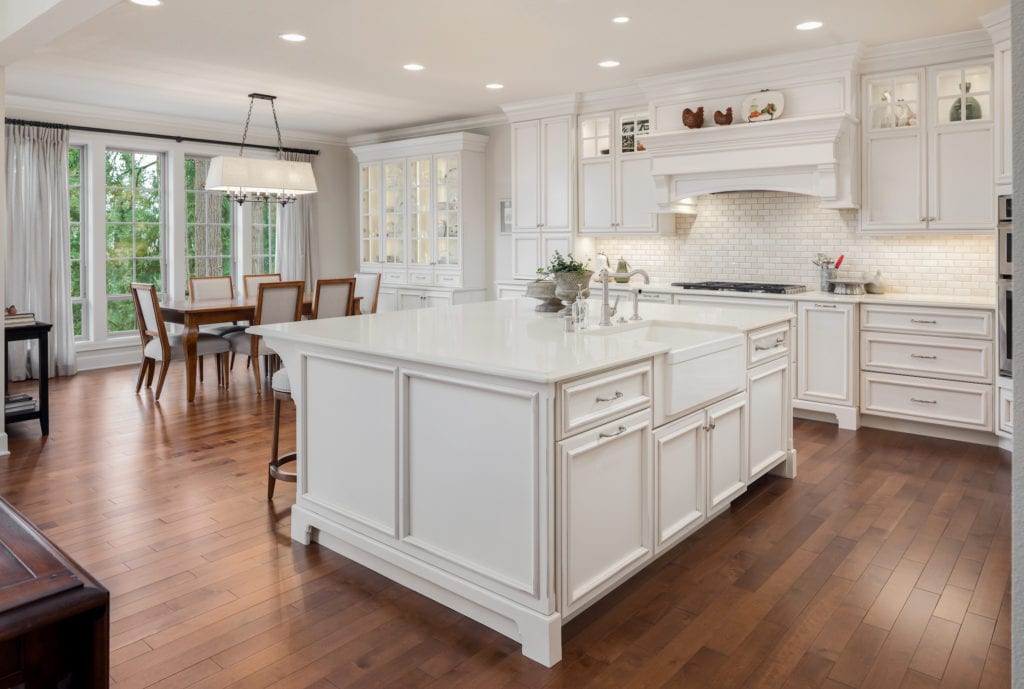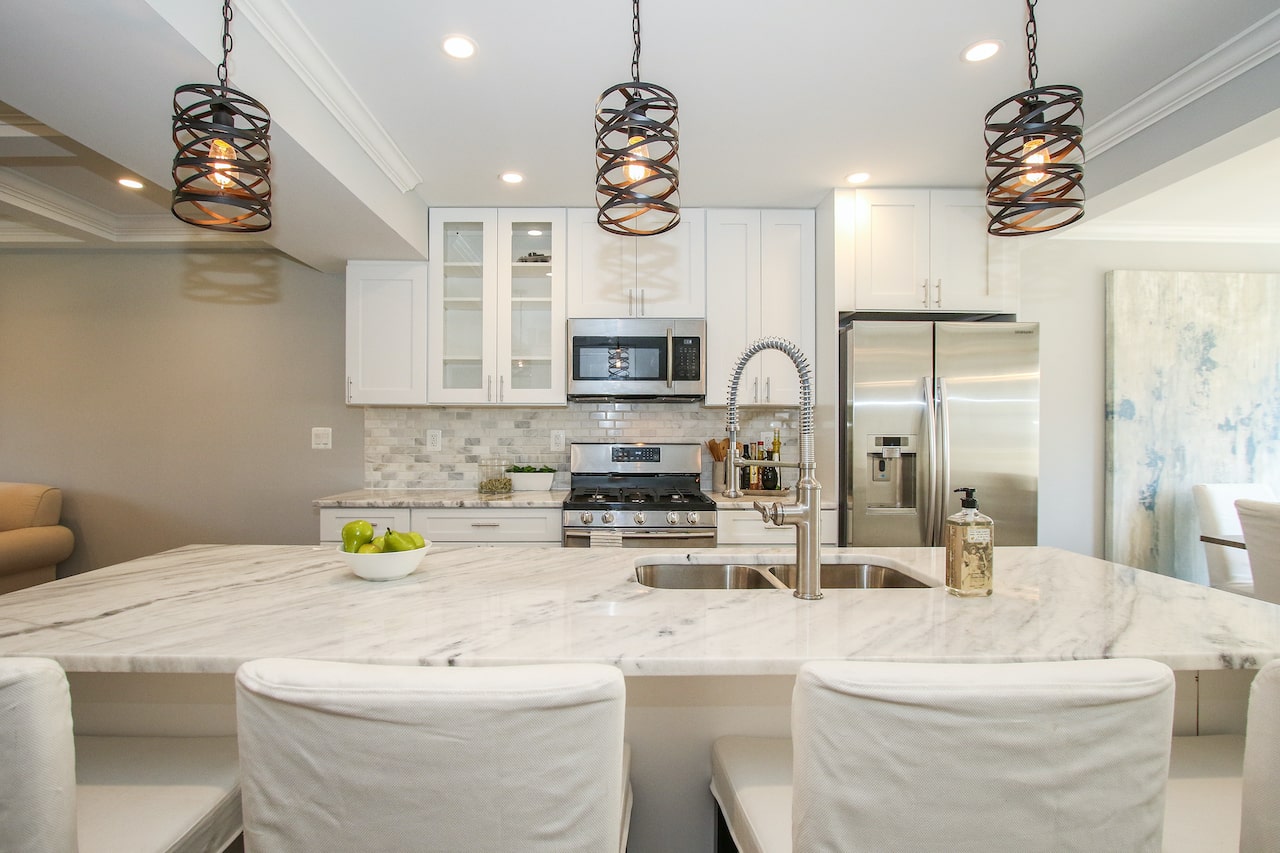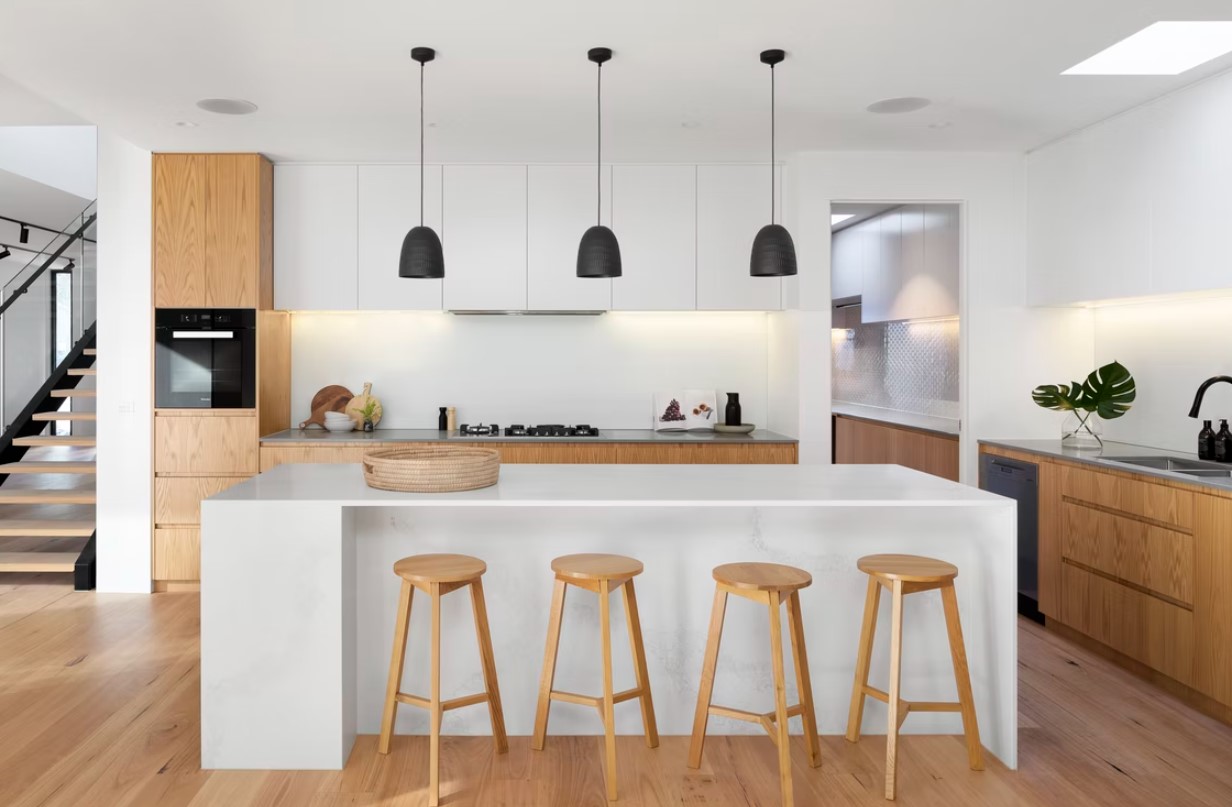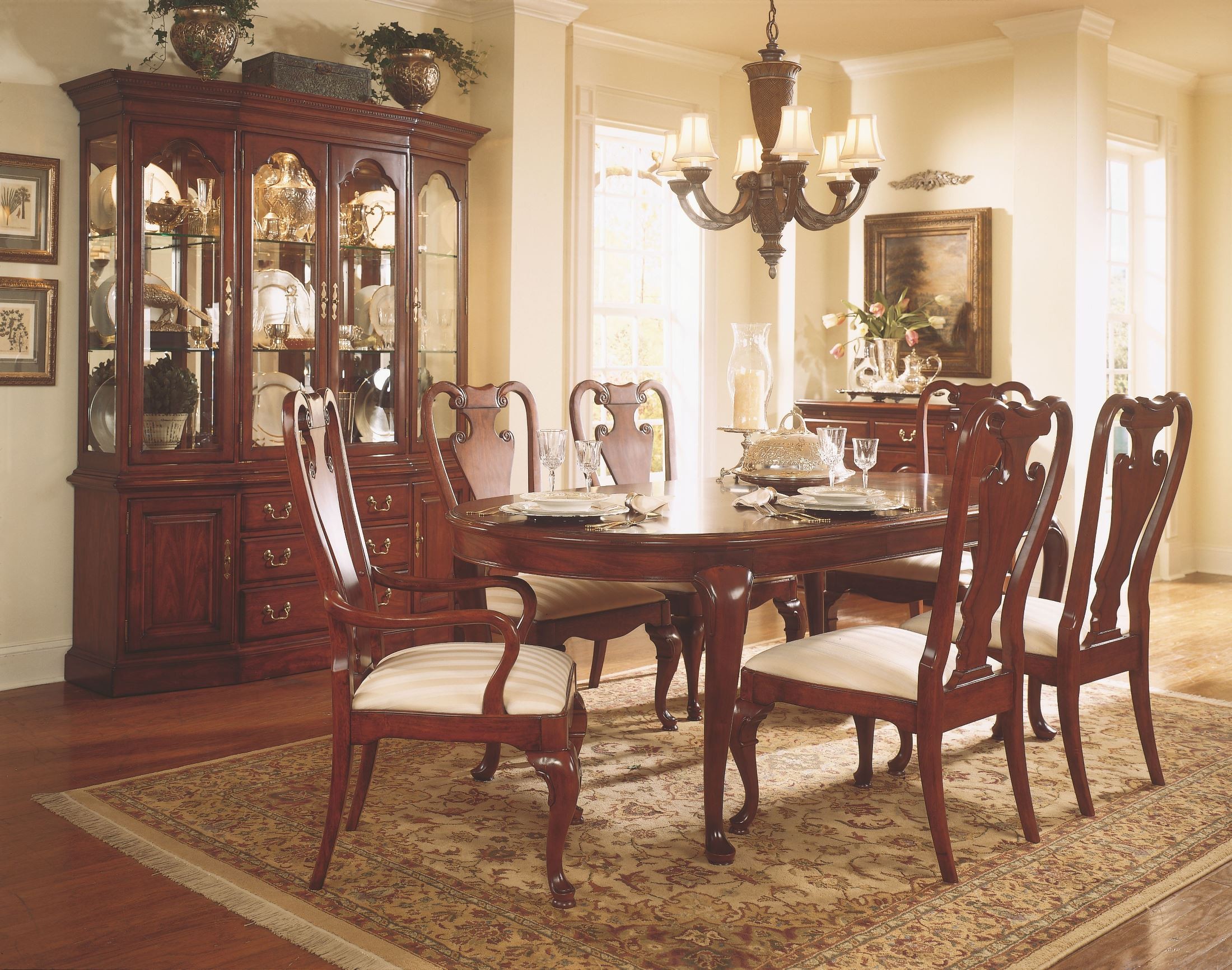If you walk into your kitchen and find that the light is not turning on, you may start to panic. A broken light can be a major inconvenience, especially when you rely on it to illuminate your cooking and dining area. Don't worry, there are a few simple steps you can take to get your kitchen light up and running again. If you have a multimeter, you can start by checking the voltage at the light switch. Make sure the power supply is turned off before attempting this. If there is no voltage, then the problem could be with the wiring. In this case, it's best to call a professional electrician to fix the issue. If there is voltage at the switch, then the problem could be with the light fixture itself. Check the light bulb and make sure it's not burned out. If it is, replace it with a new one and see if that solves the issue. If the bulb is not the problem, then the issue could be with the wiring inside the fixture. Again, it's best to call a professional to handle any wiring issues. Another potential cause of a broken kitchen light could be a tripped circuit breaker. Check your circuit breaker box and see if any breakers have been tripped. If so, reset them and see if that restores power to your kitchen light. If the breaker keeps tripping, then there may be an underlying issue with the wiring that needs to be addressed by a professional.Assuming the light in your kitchen is broken
Flickering lights can be annoying and can also be a sign of an underlying electrical issue. If your kitchen light is flickering, there are a few possible causes that you can investigate before calling a professional. Start by checking the light bulb and making sure it is securely screwed into the fixture. Loose bulbs can cause flickering as they are not making a proper connection. If the bulb is secure and the flickering persists, it could be due to a faulty light switch. In this case, you may need to replace the switch or have a professional do it for you. If the switch is not the problem, then the issue could be with the wiring. Flickering lights can be caused by loose or damaged wiring, which is a safety hazard and should be addressed by a professional electrician. Another possible cause of flickering lights is a faulty dimmer switch. If you have a dimmer switch for your kitchen light, try adjusting it to see if that stops the flickering. If not, then the dimmer switch may need to be replaced.Assuming the light in your kitchen is flickering
If you find that your kitchen light is too bright for your liking, there are a few ways to adjust the brightness and create a more comfortable ambiance in your kitchen. Start by checking the wattage of the light bulb. If it's too high for the fixture, it can create a brighter than desired light. Switch to a lower wattage bulb and see if that makes a difference. You can also try using a dimmer switch to adjust the brightness to your liking. If the brightness is still an issue, you may need to consider changing the type of light bulb you are using. LED bulbs tend to emit a brighter light, while incandescent bulbs have a softer glow. Experiment with different types of bulbs to find the right balance of brightness for your kitchen. Another option is to install a light diffuser or shade to help soften the light and reduce its intensity. This can also add a decorative touch to your kitchen lighting.Assuming the light in your kitchen is too bright
If you find that your kitchen light is not bright enough, there are a few possible solutions to increase the brightness and improve the lighting in your kitchen. Start by checking the wattage of the light bulb. If it's too low for the fixture, it can create a dimmer light than desired. Switch to a higher wattage bulb and see if that makes a difference. You can also try using a brighter type of bulb, such as an LED bulb. If the bulb is not the issue, then the problem could be with the wiring or the fixture itself. Loose or damaged wiring can affect the brightness of the light, so it's best to have a professional check it out. If the fixture is outdated, consider replacing it with a newer model that provides better lighting for your kitchen.Assuming the light in your kitchen is too dim
If your kitchen light is not turning on, there could be several possible causes that you can investigate before calling a professional. Start by checking the light bulb and making sure it's not burned out. If it is, replace it with a new one and see if that solves the issue. If the bulb is not the problem, then the issue could be with the wiring inside the fixture. Again, it's best to call a professional to handle any wiring issues. If the wiring is not the problem, then the issue could be with the light switch. Check the switch and make sure it's not damaged or worn out. If it is, you may need to replace the switch or have a professional do it for you. Another possible cause of a kitchen light not turning on could be a tripped circuit breaker. Check your circuit breaker box and see if any breakers have been tripped. If so, reset them and see if that restores power to your kitchen light. If the breaker keeps tripping, then there may be an underlying issue with the wiring that needs to be addressed by a professional.Assuming the light in your kitchen is not turning on
If your kitchen light is not turning off, there are a few possible causes that you can investigate before calling a professional. Start by checking the light switch and making sure it's not stuck or damaged. If it is, you may need to replace the switch or have a professional do it for you. If the switch is not the problem, then the issue could be with the wiring. Loose or damaged wiring can affect the function of the switch, so it's best to have a professional check it out. Another possible cause is a faulty light fixture. If the fixture is outdated or damaged, it may be keeping the light on even when the switch is turned off. In this case, you may need to replace the fixture or have a professional do it for you.Assuming the light in your kitchen is not turning off
If your kitchen light is emitting a buzzing noise, it could be due to a few different reasons. Start by checking the light bulb and making sure it's securely screwed into the fixture. Loose bulbs can cause buzzing as they are not making a proper connection. If the bulb is secure and the buzzing persists, then the issue could be with the wiring. Loose or damaged wiring can cause buzzing noises and should be addressed by a professional electrician. Another possible cause of a buzzing light is a faulty dimmer switch. If you have a dimmer switch for your kitchen light, try adjusting it to see if that stops the buzzing. If not, then the dimmer switch may need to be replaced. Lastly, the buzzing could be due to a faulty light fixture. If the fixture is outdated or damaged, it may be causing the buzzing noise. In this case, you may need to replace the fixture or have a professional do it for you.Assuming the light in your kitchen is making a buzzing noise
If you notice a burning smell coming from your kitchen light, it could be a serious issue that needs to be addressed immediately. Start by turning off the power supply to the light and letting it cool down. Once it's safe to do so, check the light bulb and make sure it's not burned out or damaged. If the bulb is fine, then the burning smell could be due to faulty wiring. In this case, it's best to call a professional electrician to fix the issue. Ignoring a burning smell from your kitchen light can be dangerous and could potentially lead to a fire. It's important to address this issue promptly and have a professional handle any wiring problems.Assuming the light in your kitchen is emitting a burning smell
If you find that your kitchen light is using up a lot of electricity, there are a few steps you can take to reduce its energy consumption. Start by replacing any incandescent bulbs with LED bulbs. LED bulbs use significantly less energy and have a longer lifespan, making them a more cost-effective option for your kitchen lighting. You can also consider installing a dimmer switch, which allows you to adjust the brightness and save on electricity usage. If your kitchen light is still using too much electricity, then it could be due to outdated wiring or a faulty fixture. In this case, it's best to consult with a professional electrician to determine the best course of action.Assuming the light in your kitchen is using too much electricity
If your kitchen light is outdated and no longer functioning properly, it may be time for a replacement. Updating your kitchen lighting can not only improve its functionality but also enhance the overall aesthetic of your kitchen. Start by considering the type of lighting you want in your kitchen. Do you prefer bright and direct light or a softer, more ambient glow? Consider installing different types of lighting, such as overhead lights, under-cabinet lights, and pendant lights, to create a well-lit and visually appealing space. Make sure to also choose energy-efficient options, such as LED bulbs, to save on electricity costs. And don't forget to consult with a professional electrician to ensure the new lighting fixtures are installed safely and correctly.Assuming the light in your kitchen is outdated and needs to be replaced
Why Lighting is Crucial in Kitchen Design

Creating a Welcoming Atmosphere
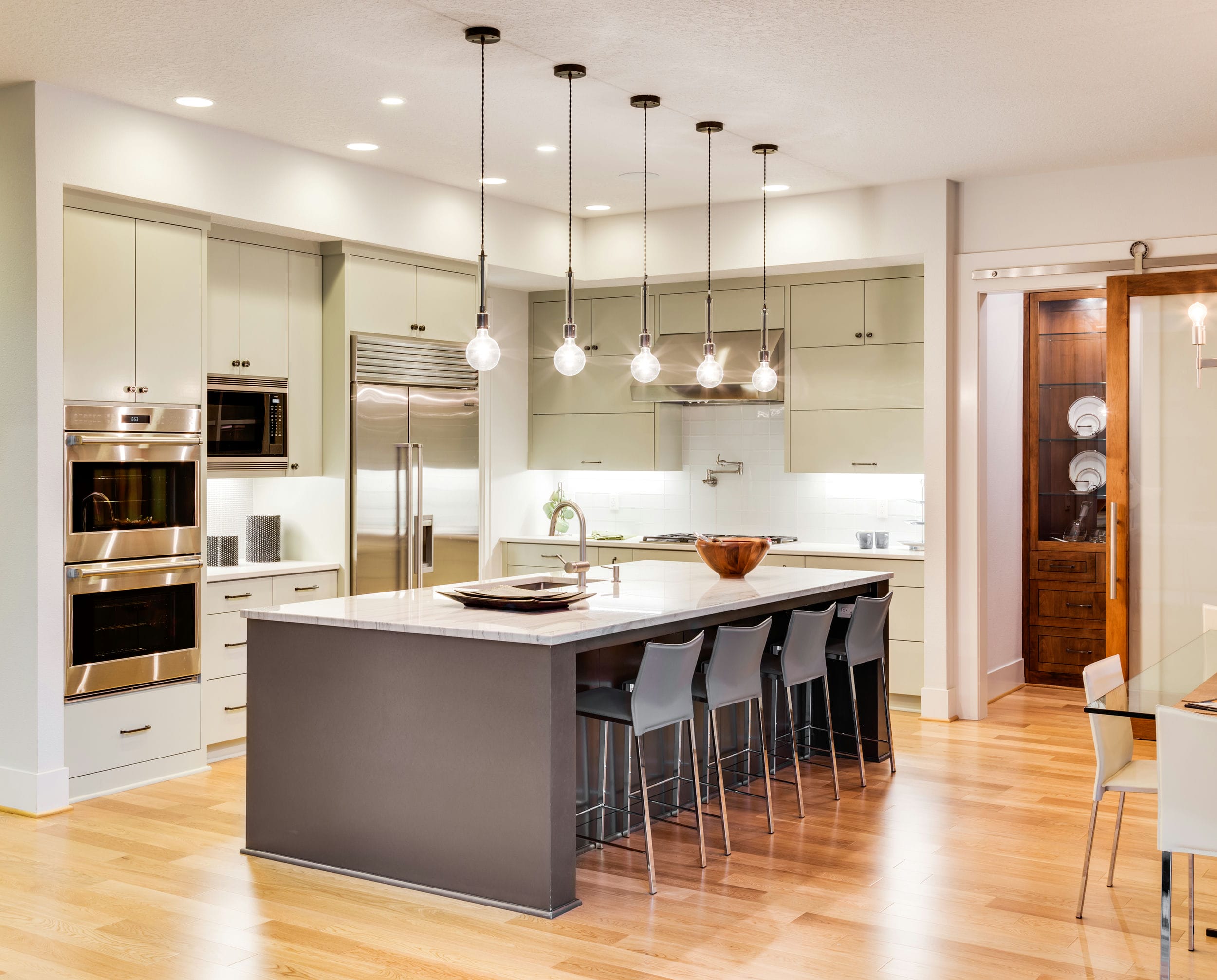 When it comes to designing a house, the kitchen is often considered the heart of the home. It's where families gather to cook, eat, and spend quality time together. That's why it's important to create a welcoming and inviting atmosphere in the kitchen.
Lighting plays a crucial role in achieving this.
Proper lighting can make a space feel warm and inviting, while inadequate lighting can make it feel cold and uninviting.
When designing your kitchen, it's important to consider the different types of lighting and how they can be used to create the perfect ambiance.
When it comes to designing a house, the kitchen is often considered the heart of the home. It's where families gather to cook, eat, and spend quality time together. That's why it's important to create a welcoming and inviting atmosphere in the kitchen.
Lighting plays a crucial role in achieving this.
Proper lighting can make a space feel warm and inviting, while inadequate lighting can make it feel cold and uninviting.
When designing your kitchen, it's important to consider the different types of lighting and how they can be used to create the perfect ambiance.
Task Lighting for Functionality
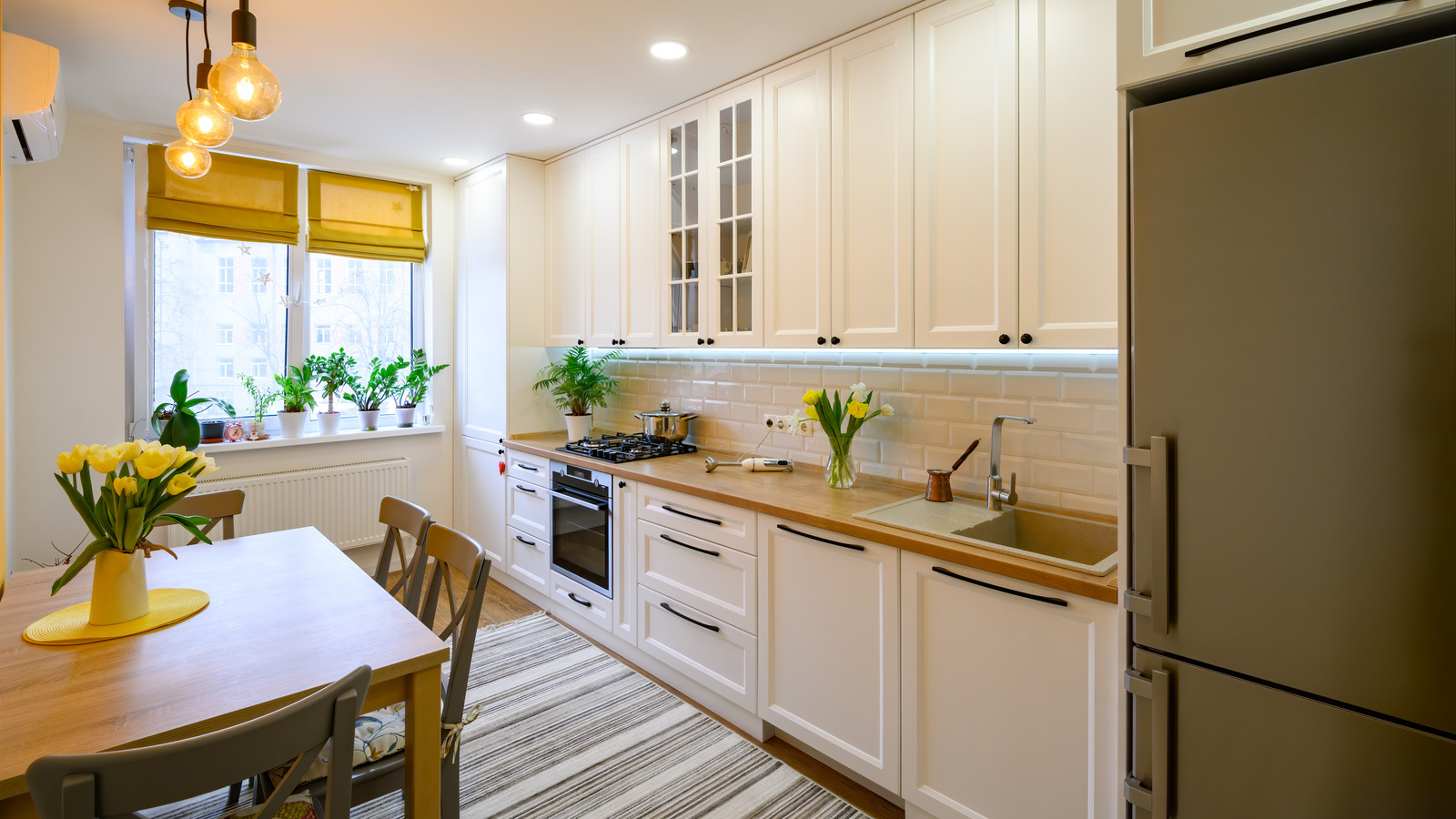 In addition to creating a welcoming atmosphere,
lighting in the kitchen also serves a practical purpose.
Task lighting refers to the lighting used for specific activities such as cooking, cutting, and cleaning.
Having task lighting in the right places can make these tasks easier and safer.
Under-cabinet lighting, for example, provides ample light for food preparation and cooking, while also adding a touch of ambiance to the space.
It's important to choose the right kind of bulbs for task lighting, as they should be bright enough to illuminate the work area without causing glare or shadows.
In addition to creating a welcoming atmosphere,
lighting in the kitchen also serves a practical purpose.
Task lighting refers to the lighting used for specific activities such as cooking, cutting, and cleaning.
Having task lighting in the right places can make these tasks easier and safer.
Under-cabinet lighting, for example, provides ample light for food preparation and cooking, while also adding a touch of ambiance to the space.
It's important to choose the right kind of bulbs for task lighting, as they should be bright enough to illuminate the work area without causing glare or shadows.
Aesthetic Appeal with Accent Lighting
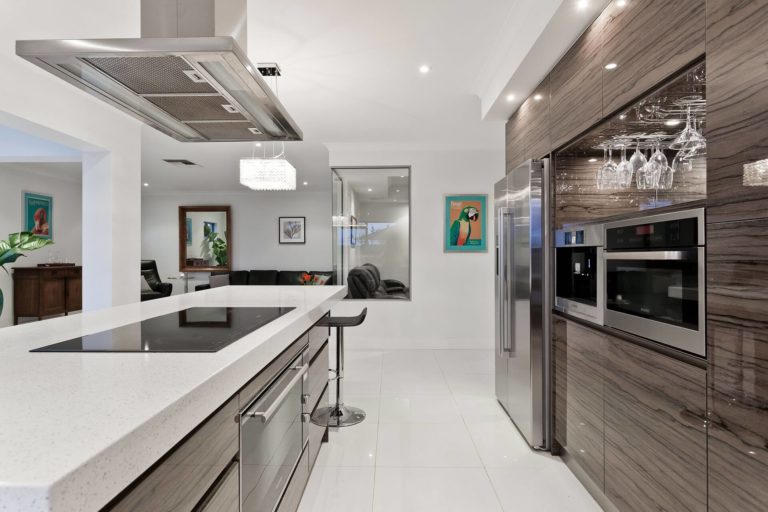 Accent lighting is another important aspect of kitchen design.
This type of lighting is used to highlight specific features or areas in the kitchen, such as a beautiful backsplash or a statement piece of artwork.
Accent lighting adds visual interest and can be used to create a focal point in the kitchen.
Pendant lights over an island or a chandelier above the dining table can also serve as accent lighting while also providing task lighting.
When choosing accent lighting, consider the style and overall design of your kitchen to ensure it complements the space.
Accent lighting is another important aspect of kitchen design.
This type of lighting is used to highlight specific features or areas in the kitchen, such as a beautiful backsplash or a statement piece of artwork.
Accent lighting adds visual interest and can be used to create a focal point in the kitchen.
Pendant lights over an island or a chandelier above the dining table can also serve as accent lighting while also providing task lighting.
When choosing accent lighting, consider the style and overall design of your kitchen to ensure it complements the space.
Conclusion
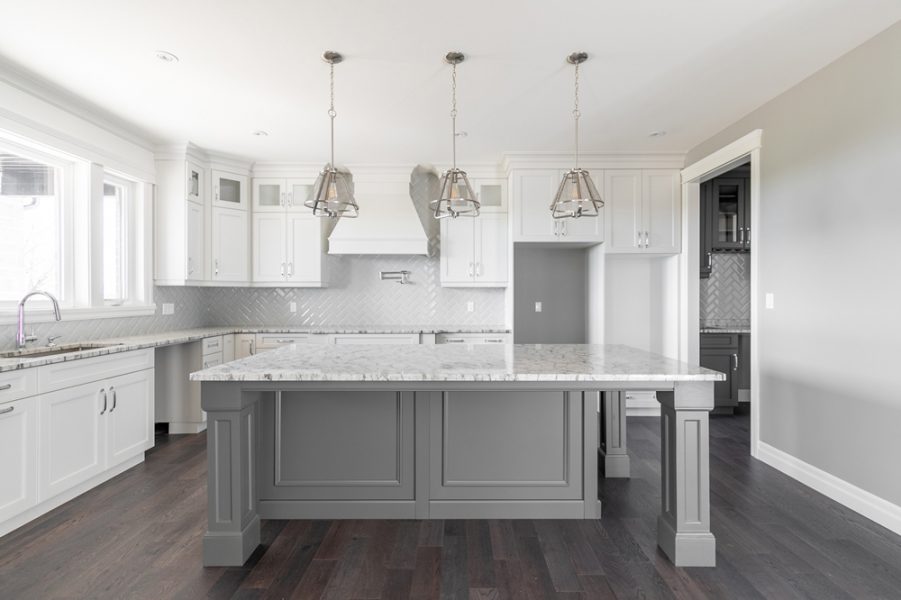 In conclusion, lighting is a crucial element in kitchen design, both for practical and aesthetic purposes.
It can create a welcoming atmosphere, make tasks easier and safer, and add visual interest to the space.
When designing your kitchen, be sure to consider the different types of lighting and how they can be used to achieve the perfect balance of functionality and style.
In conclusion, lighting is a crucial element in kitchen design, both for practical and aesthetic purposes.
It can create a welcoming atmosphere, make tasks easier and safer, and add visual interest to the space.
When designing your kitchen, be sure to consider the different types of lighting and how they can be used to achieve the perfect balance of functionality and style.






